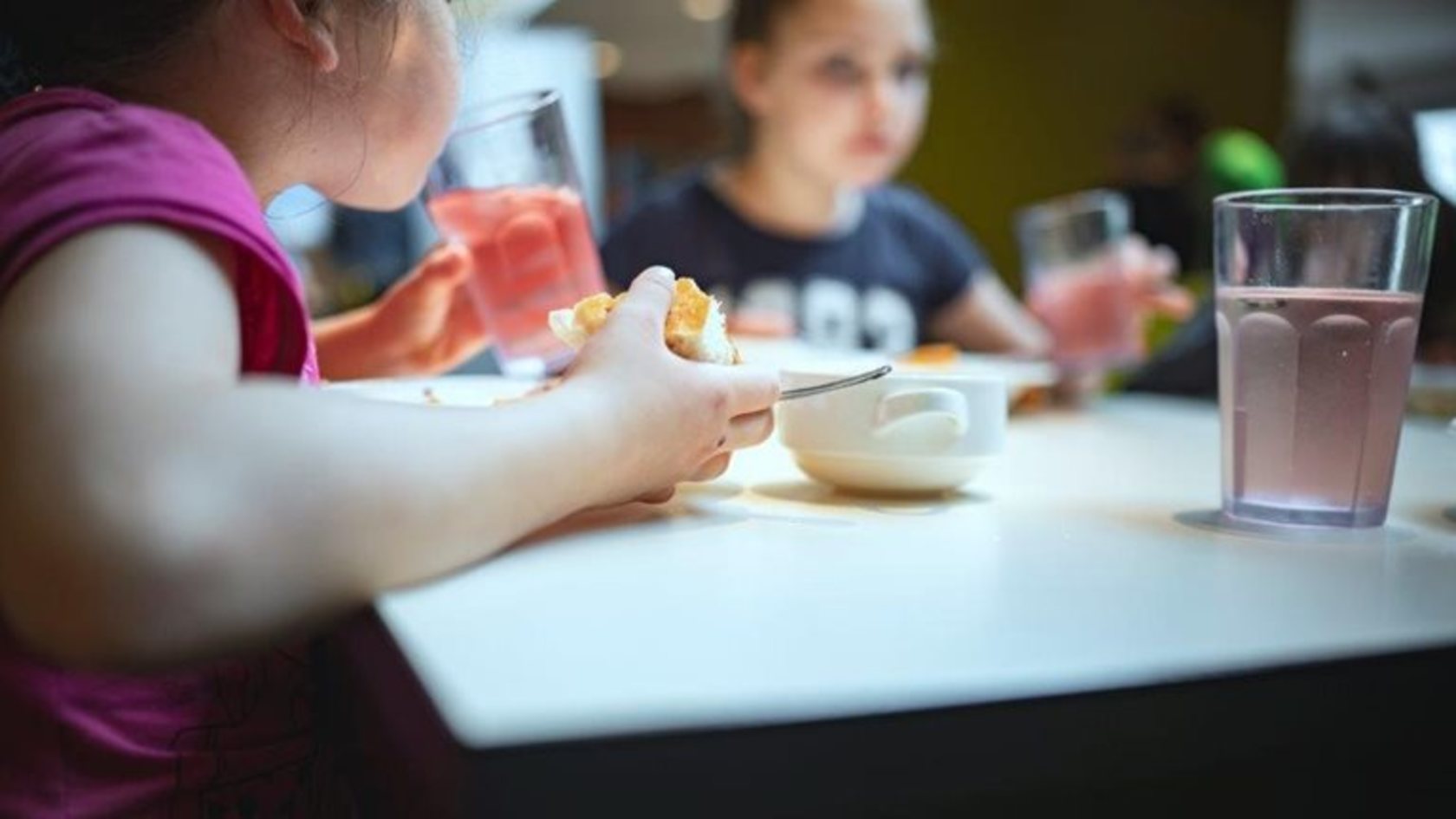
Temporary home for 100 children
Our colleague Wolfram Brugger, SOS Children's Village Director at the Innsbruck location, remembers: "From noon onwards I was constantly informed: 'Children have crossed the Austrian-Czech border, they are at the Walserberg, in Kufstein/Kiefersfelden, they are about to arrive'. We were all excited with anticipation, but at the same time tense inside. How will the children be? After the experiences of the war in their home country? After they had to leave their familiar surroundings and set out on a journey to a foreign country? Meeting foreign people, not understanding their language, looking into an uncertain future? "It was all the more important and a prerequisite that we were able to take in the children, that they were accompanied by their familiar carers and that they continue to be looked after here," says Brugger.
Colourful balloons, welcome posters in Ukrainian, English and German, important information in the three languages on each room and dolemtschers for good communication welcomed the girls and boys. A little hesitantly, the children and their carers got off the buses and were warmly welcomed by Efendi Onay, who looks after underage refugees at SOS Children's Villages, and numerous SOS Children's Village staff members, and were able to quench their hunger and thirst after a long, tiring journey. Some of the children, especially the little girls and boys, immediately used the prepared play and painting facilities. At the same time, everyone was led to their rooms: 52 children/young people and their carers had arrived safely and were safe. That was the most important thing!
Moving into the SOS Children's Village Imst a little later
While the infrastructure was in place at the Hermann Gmeiner Academy and it was primarily organisational preparations that were needed, the starting situation at the SOS Children's Village Imst was different: Everything had to happen in parallel to the ongoing operation and care of the more than 50 children/youth in the village. In the building for former In the building for former SOS Children's Village mothers, there was a lot more to adapt: just to quickly provide a functioning heating system or to get and set up beds for 50 children in time was a big challenge in times of delivery delays.
So the group had to be accommodated in a hotel in Imst on an interim basis and could only move to the SOS Children's Village after ten days on 3 April. "Not an easy situation for both sides," says Wolfram Brugger. "It was certainly more difficult in Imst, the challenges greater, infrastructurally and pedagogically: the number of children in the village suddenly doubled! Nevertheless, children and carers now have safe accommodation, are well looked after and are integrating better and better into village life and feel at home here," says Brugger happily. "A very big THANK YOU to all the supporters and helping hands who have actively lent a hand!"
All children go to school
Thanks to the support of the UNI Clinic Innsbruck and numerous doctors, all 102 children and adolescents were quickly medically examined and cared for. with the responsible authorities and headmistresses. In the meantime, all children and adolescents go to various primary and secondary schools and to grammar school. For the time being, internal kindergarten solutions have been found for the toddlers.
Everyday life and leisure
It is a great advantage that both locations have large sports fields and playgrounds for outdoor activities. Riding tricycles, scooters, running, jumping, playing football and much more are now commonplace, in Imst also with children from the SOS Children's Village.
If you didn't have the war in the back of your mind all the time, it would often just look like children playing happily," say Wolfram Brugger and Efendi Onay unanimously. "It's good that children often quickly and intensively sink into play and forget about other things."
Many Challenges
"The big first hurdles have been overcome," Wolfram Brugger and Efendi Onay rejoice with all the others involved in Ukraine Aid in Tyrol. "Together we were able to initiate and implement everything quickly and unbureaucratically. Nevertheless, every day new, often unexpected issues and challenges arise every day. The language and culture, different framework conditions and experiences in care require a lot of exchange and trusting conversations for mutual understanding and comprehension. "Depending on how long the war lasts, further extensive support and integration programmes will be needed in the medium and long term.
Depending on how long the war lasts, further extensive support and integration programmes will be needed in the medium and long term, and financial benefits will have to be clarified, e.g. also for the carers from Ukraine.
